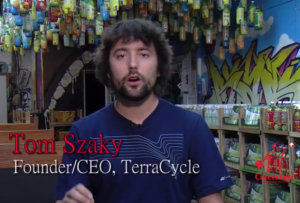The JOBS Act–often referred to as the new crowdfunding laws–was approved by Congress in April, 2012 and signed into law by President Obama. This law was created to help new businesses raise capital in order to accelerate job creation.
Over the past 80 years, securities law has largely remained stagnant with respect to fundraising for new businesses. The recession that began in 2007 led to a dramatic drop in new business formation and with it new jobs. Many believe that securities crowdfunding will transform and democratize the capital raising process for small businesses and emerging growth companies.
There are many types of crowdsourcing choices ranging from donations and preorder sales to securities crowdfunding (debt, equity and revenue sharing). Some avenues allow you to take money from anyone (Title III) while others limit you to accredited (wealthy) investors (Title II).
CareerFuel has the information you need to determine if this is right for your business and the best resources to help you execute a successful campaign. Our content is written or filmed from the perspective of the entrepreneur, not the investor, because the considerations for the business owner can be different than those of the person donating or investing.
Knowing which type of securities crowdfunding is best for your business, the online platforms to consider, the financial and marketing materials required and the costs to you as the entrepreneur are just some of the things to think about.
CareerFuel’s original content shown below can bring you up to speed quickly on this exciting new fundraising option.
What is Crowdfunding?
Crowdfunding is the source of funding for startups and/or small businesses. For several years, companies such as KickStarter, Indiegogo, and RocketHub have offered organizations, individuals or businesses web-based platforms on which to raise money via donations for fees ranging from 5-12% including Paypal processing fees.
Most donation based crowdfunding projects are geared towards raising money for non-profits and community projects. Incentives like tee-shirts, movie credits and/or karma are usually offered to encourage donations.

Where Does Crowdfunding Fit Among Fundraising Options?
Money—or the lack thereof—is the single biggest challenge faced by entrepreneurs.
Judy Robinett, a well-known angel investor, explains the startup funding ecosystem in an easy-to-grasp and encouraging fashion.
Understanding the continuum of funding options and where your small business fits in is the first step.
Judy’s guidance could be the most important thing you do to ensure that your startup or small business has the money it needs to be successful.
Video Production Services













